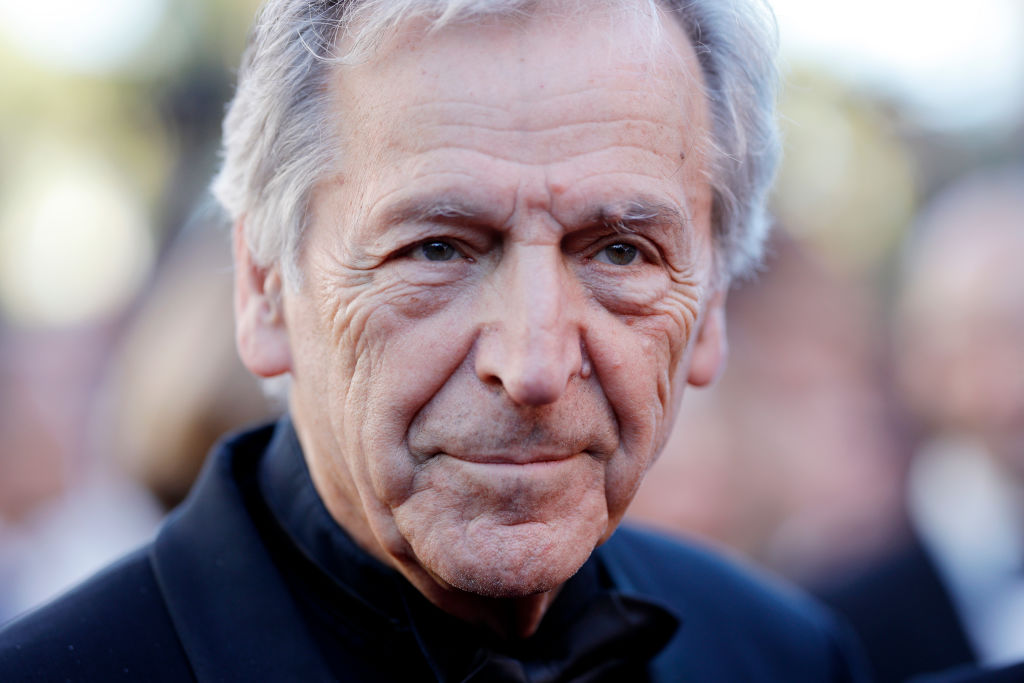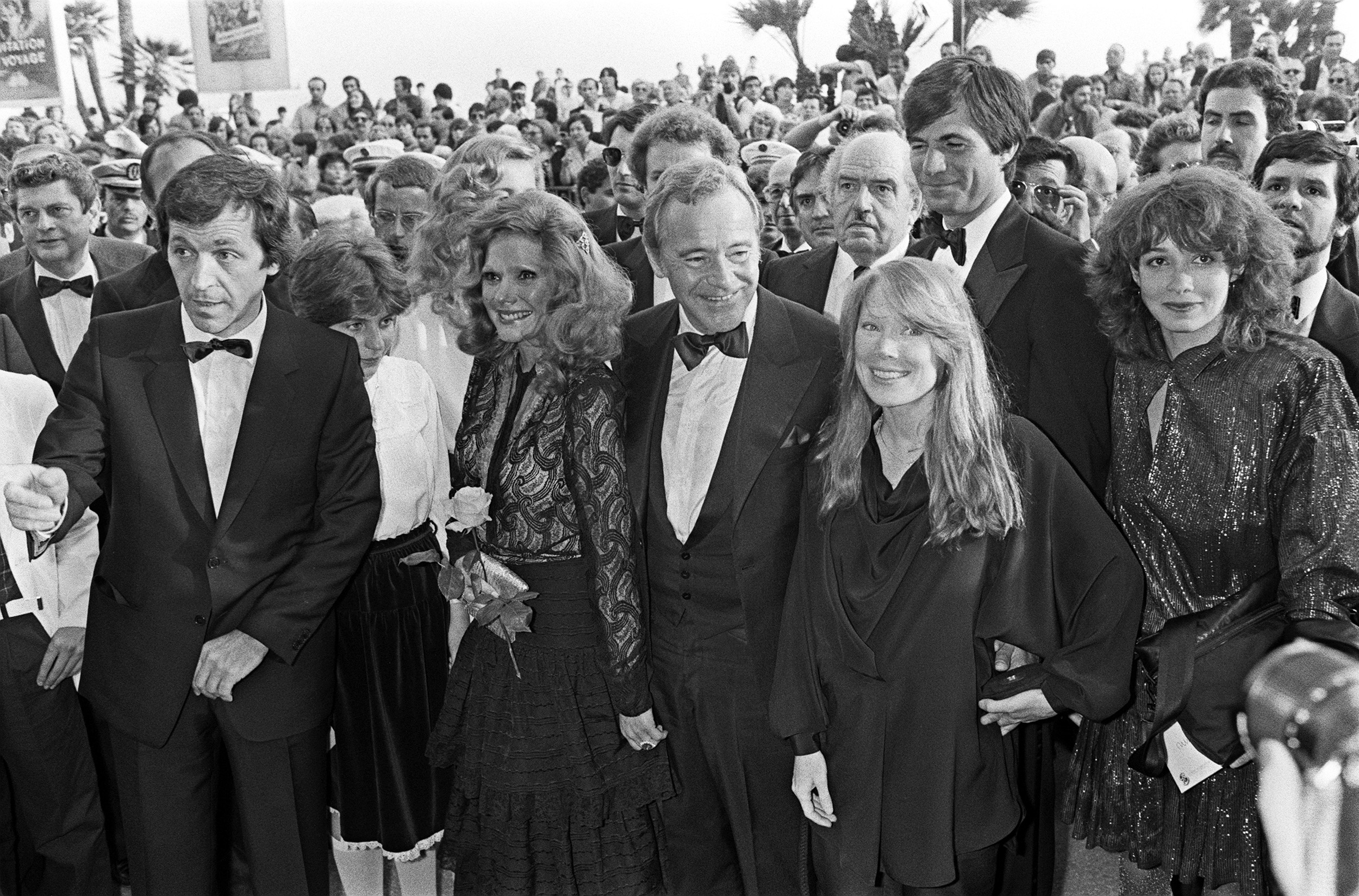
- Film
Filmmakers’ Autobiographies: Constantin Costa-Gavras
Z, The Confession, State of Siege, Missing, Music Box are some of the seminal films by Greek director and Golden Globe winner Constantin Costa-Gavras who in a long career which began in 1965 established himself as one of the most relevant masters of political thrillers. Today, at 85, the filmmaker has just published his first book in French, Va où il est impossible d’aller, a captivating autobiography whose title, taken from writer Nikos Kazantzakis (Zorba the Greek, The Last Temptation of Christ) translates to Journey Where it is Impossible to Go. In five hundred pages, he goes down memory lane with a detailed, lucid and very incisive and often moving look on his career, his influences, the people he met through a very rich life for which he has no regret.
It all started in Greece where he was born in 1933, in the village of Loutra-Iraias, in the center of the Peloponnese. According to mythology, it was the very home of the God Pan. Because of his father’s antiroyalism during the war, which branded him as a de facto communist in the eyes of the government, Constantinos, as he was named, couldn’t study in his country. So in October 1955, a one-way ticket brought him to Paris. Even with little money, barely able to speak a few words of French, for him, “it is where the future was possible.” There he joined the Sorbonne to read literature. Moviemaking is not on his radar yet. But he is already an avid moviegoer in the many cinemas of the Latin Quarter where he still lives today. In the end, he switched to IDHEC, the prestigious film school which would decide of his professional destiny. He got his diploma in 1959, just as the New Wave was blooming. But it is with the old guard filmmakers that he starts as an assistant director. René Clair, Yves Allégret, Jean Giono, Henri Verneuil. On the set of René Clément’s The Day and the Hour, he meets Simone Signoret and Yves Montand. The beginning of a close friendship that will last until the passing of the legendary couple.
In 1965, the two actors appear in Costa-Gavras’s directorial debut The Sleeping Car Murders, a taut thriller in the vein of Henri-Georges Clouzot which is a hit.
Four years later, the release of Z marks the beginning of his reputation as a cinéaste engage – a political filmmaker A label he’s gone reluctantly accustomed over the years. “For me, movies are about entertainment. I don’t believe in messages. Cinema is about images and they can interest you, captivate you, move you and that is what we expect from them.”Part of the necessity of writing his book, he says, “was to tell how films are born.” Chance and coincidence often being parts of the equation.

In Cannes1982, with Missing: Costa Gavras, Jack Lemmon and his wife, Sissy Spacek, and Melanie Mayron.
ralph gatti/afp/getty images
Case in point: the inception of Z as he recalls it. “I went to Greece to visit my parents and my brother gave me Vassily Vassilikos’book to read on the plane back to Paris. My first reaction at the z on the cover? What a stupid title. But once I started I could not put it down. And I didn’t even notice Aristotle Onassis was on board. The day after, Jorge Semprun called to ask me if I knew what had just happened in my country. The coup d’état by the colonels of the Junta who had seized power [on April 21st, 1967]. We immediately met at the Montand’s place and Simone is wondering how we could protest. By making a film is for us all the solution. So Jorge and I went to their country house to write the script. I gave it to Montand who says “I am in.” But of course impossible to shoot in Greece so Jacques Perrin who is producing, suggests Algeria.” Pre-production will be delayed by the May 68 events in Paris but, a small hurdle considering the film will obtain two Oscars, as best foreign film and best editing, as well as the Jury Prize at the Cannes Film festival.
A year later with The Confession, he unflinchingly examines the post-1945 purges in Soviet-occupied Czechoslovakia. And with State of Siege in 1972, his fourth film with Yves Montand, he concludes his political trilogy with another story inspired by true events about the kidnap and murder of a CIA agent by the Tupamaros guerilla in Uruguay. A film he shot in Chile before Pinochet took over from president Allende whom Costa-Gavras had befriended. With success and a growing reputation, Costa-Gavras found himself very much in demand. He tells funnily about some disconcerting proposals like a script sent by Colonel Qadafi giving him carte blanche and plenty of cash. He turned down Robert Evans’ offer to direct The Godfather. Francis Coppola would later thank him. No wonder! Dino de Laurentiis approached him for the King Kong remake. Robert Redford wanted very much to work with him but demanded a none too convincing happy end. The film never materialized just like a long time pet project of an adaptation of André Malraux’s The Human Condition.
Page after page, he relates many juicy anecdotes about his dealings with Hollywood and how he coped with many of the stars’ idiosyncrasies. For Missing, the studio wanted him to hire Gene Hackman for the plum role of the father looking for his journalist son who has disappeared in Chile during the military coup. Then Paul Newman was suggested. Kirk Douglas, hearing about the part, called him to say he was available. Walter Matthau too. And Marlon Brando invited him to lunch at his house on Mulholland Drive but never once talked about the role! All along, Costa-Gavras only wanted Jack Lemmon who would win the best actor prize for the role at the Cannes Film festival. For Music Box, the producer suggests Jane Fonda who is ready to sign but has to be told that in fact, he has chosen Jessica Lange. On Betrayed, Debra Winger demands to be lit in such ways to show her green eyes to the fullest of their color. John Travolta prefers the part that has been previously offered to Dustin Hoffman in Mad City….There are many memorable encounters. In 1971, during the dinner after The Academy Awards, Gregory Peck takes him to the table of Elizabeth Taylor who bluntly tells him: “Why you, anything, anytime, anywhere.” There is an evening at George Cukor’s where John Ford asks him about the way he shot some sequence with a handheld camera. There are conversations with King Vidor, Frank Capra, William Wyler. He only wished he has spent more time with those legends. And many souvenirs of course of Yves Montand…one of the funniest found them watching Alien together in a cinema on the Champs-Elysées as the terrorized actor asked to be warned before all the scary moments.
Today Costa-Gavras is the President of the Cinemathèque Française, one of the world’s largest film archives. He is still highly amused to have been once approached to be the President of Greece, which he declined. Prime Minister Alexis Tsipras offered him the Ministry of Culture. He thought about it and turned it down. “It is not my place, he writes. I am a French filmmaker.”
And today his enthusiasm for cinema is intact. His next project will be the adaptation of Adults in The Room, a book written by Yanis Varoufakis, the Greek leftwing economist and former minister of Finance. A scathing and unvarnished account of his attempt to renegotiate Greece’s relationship with the E.U after the 2010 bailout, and his unsuccessful struggle to resolve his country’s debt crisis in the midst of populist upheaval. “It is a very difficult and sensitive subject, but hopefully and if I find the financing, I intend to start shooting at the end of the year.”
Count on Costa-Gavras to still “journey where it is impossible to go”…

